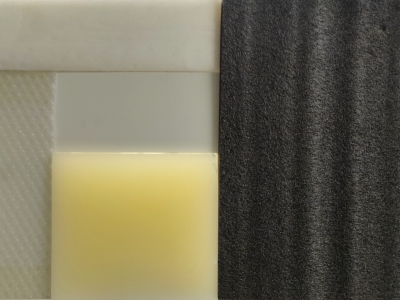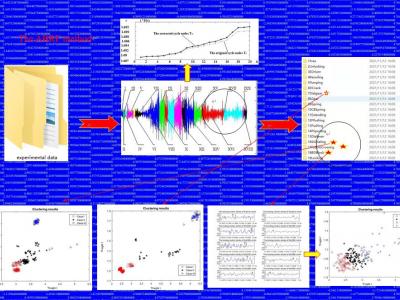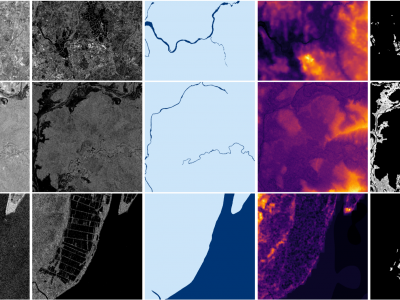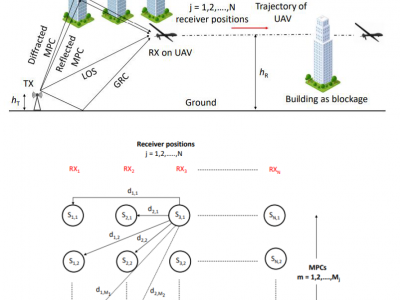Signal Processing
This dataset has been taken using the Photonic Mixer Device (PMD) Selene Module. To capture the image, we have constructed a demonstrator setup consisting of five materials (i.e., foam board (location: center), crepe paper (location: top), polystyrene (location: right), bubble wrap (location: left), wax (location: bottom)). Each image has been taken at 5 different distances (uniformly distributed between 82 cm to 47 cm) and at 3 different orientations (uniformly distributed between -10 degree to 10 degree) for each material. To avoid noise, each image has been taken in dark environment.
- Categories:
 154 Views
154 ViewsThe data part is the beneficial supplementary part of the article of Complex Theory and Batch Processing in Mechanical Systemic Data Extraction. It is including 2 parts. One is the about the original designed period. Another is the experimental data from 9 virtual experiments. It serves for the higher efficiency of ABRF.
- Categories:
 104 Views
104 Views
In conventional particle beam microscopy, knowledge of the beam current is essential for accurate micrograph formation and sample milling. This generally necessitates offline calibration of the instrument. In this work, we establish that beam current can be estimated online, from the same secondary electron count data that is used to form micrographs.
- Categories:
 67 Views
67 Views
This is a data set of identification for nonlinear flow characteristics of paper ''Identification for nonlinear flow characteristics of main steam regulating valves by mining special segments from industrial big data ''.
- Categories:
 100 Views
100 ViewsAccurate flood delineation is crucial in many disaster management tasks, including, but not limited to: risk map production and update, impact estimation, claim verification, or planning of countermeasures for disaster risk reduction. Open remote sensing resources such as the data provided by the Copernicus ecosystem enable to carry out this activity, which benefits from frequent revisit times on a global scale. In the last decades, satellite imagery has been successfully applied to flood delineation problems, especially considering Synthetic Aperture Radar (SAR) signals.
- Categories:
 3339 Views
3339 Views
The data is planned to be used in thunderstorm movement path prediction.
- Categories:
 107 Views
107 Views
We present the simulated and real data used in the experiments of the MCA-SAR method. The simulated data is the simulation echo of the existing SAR images, and the real data was collected by RADARSAT-1 in Vancouver on June 16, 2002, which is the public data taken from the book [1].
[1] Cumming I G, Wong F H. Digital Signal Processing of Synthetic Aperture Radar Data: Algorithms and Implementation [M]. London, UK: Artech House, 2005.
- Categories:
 123 Views
123 ViewsGround-to-air (GA) communication using unmanned aerial vehicles (UAVs) has gained popularity in recent years and is expected to be part of 5G networks and beyond. However, the GA links are susceptible to frequent blockages at millimeter wave (mmWave) frequencies. During a link blockage, the channel information cannot be obtained reliably. In this work, we provide a novel method of channel prediction during the GA link blockage at 28 GHz.
- Categories:
 472 Views
472 Views
The dataset contains results of the paper being submitted.
- Categories:
 117 Views
117 Views
The EegDot data set collected using a Cerebus neural signal acquisition equipment involed thirteen odor stimulating materials, five of which (smelling like rose (A), caramel (B), rotten (C), canned peach (D), and excrement (E)) were selected from the T&T olfactometer (from the Daiichi Yakuhin Sangyo Co., Ltd., Japan) and the remaining eight from essential oils (i.e., mint (F), tea tree (G), coffee (H), rosemary (I), jasmine (J), lemon (K), vanilla (L) and lavender (M)).
- Categories:
 342 Views
342 Views


